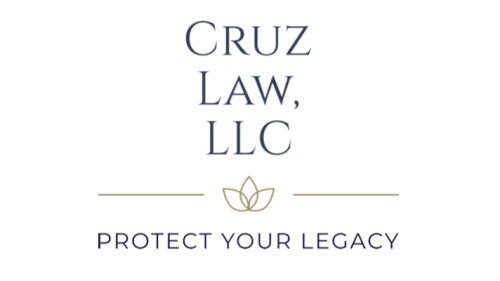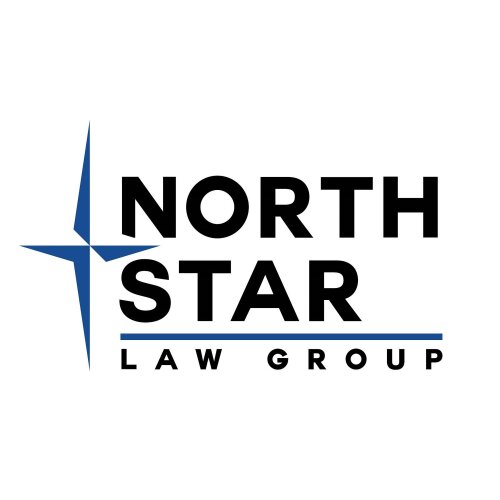Best Guardianship Lawyers in Alaska
Share your needs with us, get contacted by law firms.
Free. Takes 2 min.
Or refine your search by selecting a city:
List of the best lawyers in Alaska, United States
About Guardianship Law in Alaska, United States
Guardianship in Alaska involves a legal process where a court appoints an individual or entity (the guardian) to make decisions on behalf of another person (the ward) who is unable to make decisions for themselves. This typically applies to minors without parents available, adults with developmental or age-related disabilities, or those temporarily incapacitated. Alaska courts grant guardianship powers to ensure that vulnerable individuals have their health, safety, and best interests protected. The appointed guardian may have authority over personal, financial, or health-related affairs, depending on the court’s order.
Why You May Need a Lawyer
People often need legal assistance with guardianship for several reasons. Obtaining guardianship can be a complicated process that involves court filings, hearings, and strict compliance with Alaska law. You may require a lawyer if you are:
- Seeking guardianship of a minor child or elderly adult due to incapacity or parental absence
- Contesting a guardianship petition filed by someone else
- Facing challenges in fulfilling your duties as a current guardian
- Trying to terminate or modify an existing guardianship order
- Concerned about potential abuse or neglect of a ward
An attorney can help ensure your case proceeds correctly, your rights are protected, and that the best interests of the ward are prioritized.
Local Laws Overview
Alaska guardianship laws are governed primarily by Titles 13 and 47 of the Alaska Statutes. Some key features include:
- Courts may appoint guardians for both minors and incapacitated adults
- The petitioner must prove to the court that the person in need is unable to make informed decisions for themselves
- Priority is often given to close family members, but anyone may petition for guardianship
- Guardians are required to report annually to the court about the ward’s well-being and finances
- The best interests of the ward are at the core of all decisions
- Alternatives to full guardianship, such as limited guardianship or durable power of attorney, must be considered first
- Alaska law requires that less restrictive alternatives be explored whenever possible
The Alaska Superior Court oversees guardianship matters, and legal procedures can vary based on the unique facts of each case.
Frequently Asked Questions
What is the difference between guardianship and conservatorship in Alaska?
Guardianship covers decisions related to a person's care, health, and living situation. Conservatorship focuses on managing a person's financial assets and property. Sometimes, one person can serve as both guardian and conservator if the court permits.
Who can petition to become a guardian in Alaska?
Any adult, including relatives, friends, or professionals, may file a guardianship petition with the court. The court will evaluate the suitability of the petitioner to serve as guardian.
Is court approval always required for guardianship?
Yes, legal guardianship requires a court order in Alaska. The process includes filing paperwork, serving notice to interested parties, and attending a court hearing.
What are the responsibilities of a guardian in Alaska?
Guardians must act in the best interest of the ward, ensuring proper care, housing, medical treatment, and, in some cases, handling education or occupational needs. Reporting to the court about the ward’s status is also required.
Can a guardianship be temporary?
Yes, the court can grant temporary guardianship if immediate action is necessary to protect the person’s welfare. Temporary orders generally last for up to 90 days, but may be extended in extraordinary circumstances.
How do I terminate or change guardianship?
A petition to terminate or modify guardianship can be filed by the ward, guardian, or another interested party. The court will review evidence and make a decision in the ward's best interest.
Are there alternatives to full guardianship?
Alaska law encourages less restrictive options where appropriate, such as supported decision making, durable powers of attorney, or appointing a representative payee for government benefits.
Will the ward have a say in the guardianship process?
Yes, the proposed ward has rights, including notification of the proceedings, representation by an attorney (sometimes court-appointed), and the opportunity to present their views to the court.
How is incapacity determined in Alaska?
A court typically relies on medical, psychological, or psychiatric evaluations to determine if a person lacks capacity to meet essential requirements for their care or safety.
What happens if a guardian abuses their power?
Anyone may report suspected abuse, neglect, or exploitation. The court can investigate, demand accounting, remove the guardian, and appoint a replacement to protect the ward.
Additional Resources
Here are some helpful resources related to guardianship in Alaska:
- Alaska Court System - Probate Division: Handles guardianship and conservatorship cases and provides forms and guidance
- Alaska Office of Public Advocacy: May serve as guardian or provide representation in certain cases
- Alaska State Bar Association: Offers lawyer referral services and information
- Adult Protective Services: For concerns about abuse or neglect of incapacitated adults
- Alaska Legal Services Corporation: Provides free or low-cost legal help to qualifying individuals
Next Steps
If you believe guardianship may be necessary for yourself or someone else, start by gathering all relevant information about the proposed ward’s needs, medical history, and existing support systems. Consider the least restrictive alternatives to guardianship. The next step is to consult with an experienced Alaska guardianship attorney, who can explain your options, help you prepare and file the necessary documents, and represent you at court hearings. If you need immediate help or suspect abuse, contact the appropriate government agency right away. Navigating guardianship can be complex, but with proper legal guidance, you can help protect the well-being and rights of those who need assistance in Alaska.
Lawzana helps you find the best lawyers and law firms in Alaska through a curated and pre-screened list of qualified legal professionals. Our platform offers rankings and detailed profiles of attorneys and law firms, allowing you to compare based on practice areas, including Guardianship, experience, and client feedback.
Each profile includes a description of the firm's areas of practice, client reviews, team members and partners, year of establishment, spoken languages, office locations, contact information, social media presence, and any published articles or resources. Most firms on our platform speak English and are experienced in both local and international legal matters.
Get a quote from top-rated law firms in Alaska, United States — quickly, securely, and without unnecessary hassle.
Disclaimer:
The information provided on this page is for general informational purposes only and does not constitute legal advice. While we strive to ensure the accuracy and relevance of the content, legal information may change over time, and interpretations of the law can vary. You should always consult with a qualified legal professional for advice specific to your situation.
We disclaim all liability for actions taken or not taken based on the content of this page. If you believe any information is incorrect or outdated, please contact us, and we will review and update it where appropriate.
Browse guardianship law firms by city in Alaska
Refine your search by selecting a city.














